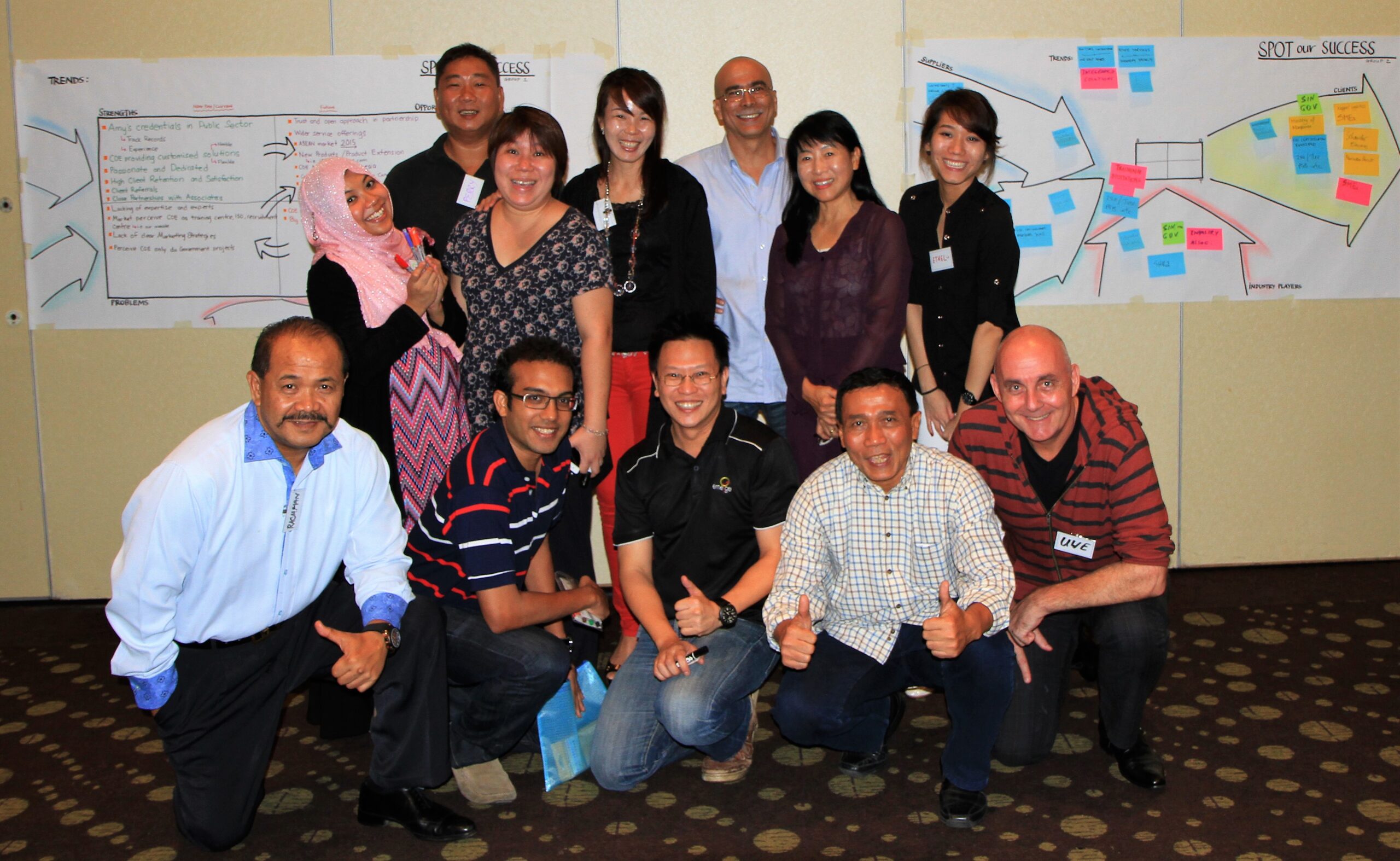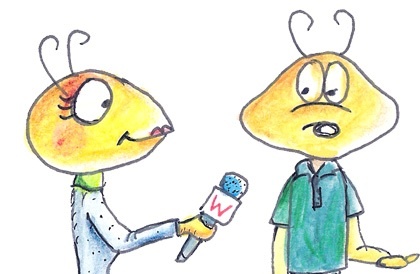
Manager as Coach
Coaching is a powerful style of leadership for developing people and enhancing business performance. Especially, with the rapid changes at workplaces, keeping employees’ committed and motivated during tough economic times seems like a tall task, especially after downsizing or programme cutbacks.
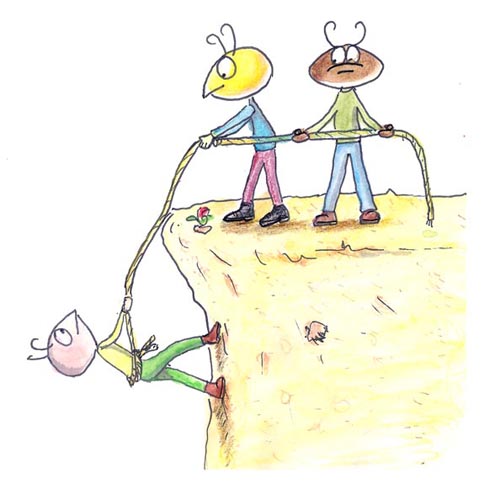
My experience is clear: If leaders get feedback, follow-up, and involve their co-workers in the change process, they get better.
Marshall Goldsmith
Coaching as Part of Personal Mastery
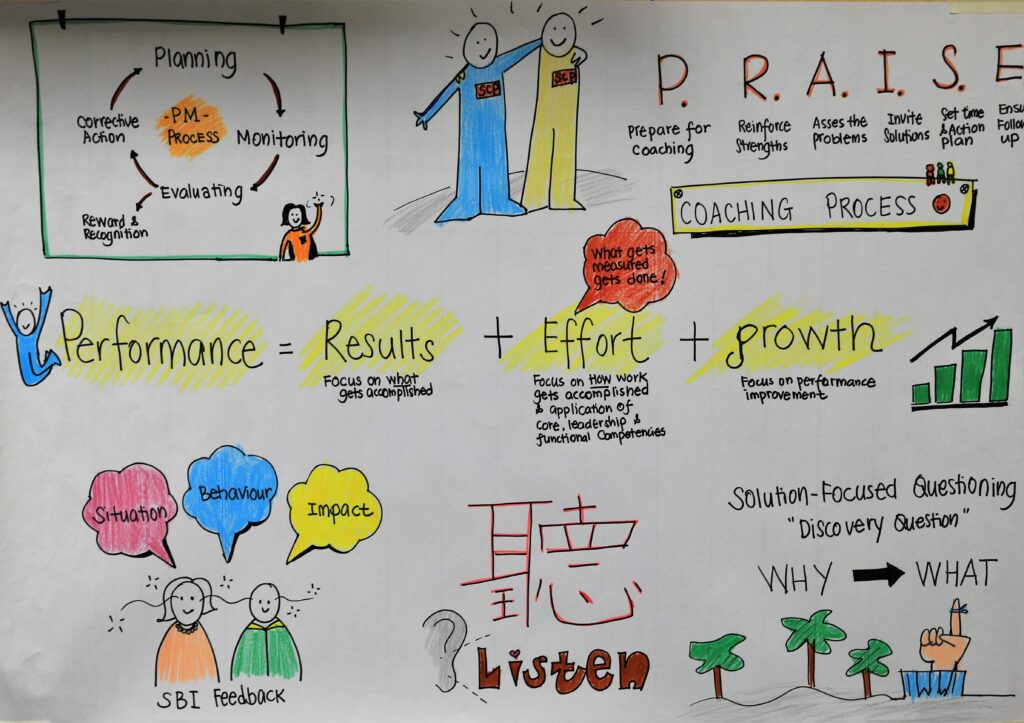
How to Coach – the Coaching Style
Understanding Coaching: Coaching helps you to bring out the potential in your staff. The coaching process closes the gap between individuals’ or teams’ present level of performance and the desired one. This can happen within a single coaching session, or over a long cycle of sessions. As a coach-manager, you will develop your staff by mutually assessing performance, discussing the present situation, defining achievable goals, exploring new initiatives, and supporting your coachee in his plan of action. Coaching refers both to specific skills and encouragement of long-term development.
- Dominant (D) – Do As I tell you, do as I do!
- Influencing (i) – You can do it!
- Steady/Sympathetic (S) – Do it better this way, what do you think?
- Controlling (C) – Figure it out this way and why!
How to Communicate – the Communication Style
- Amiable: The amiable communication style tends to lead people by caring for others, providing support, and talking about the past.
- Expressive: The expressive communication style tends to lead people by sharing ideas, concepts or theories, seeing all possibilities, motivating, inspiring, and focusing on coachee’s future.
- Driver: The driver communication style tends to lead people by focusing on action, getting right to the point, and not wanting to wait.
- Analyst: The analyst communication style tends to lead people by staying focused on facts, information, rules, and established procedures.
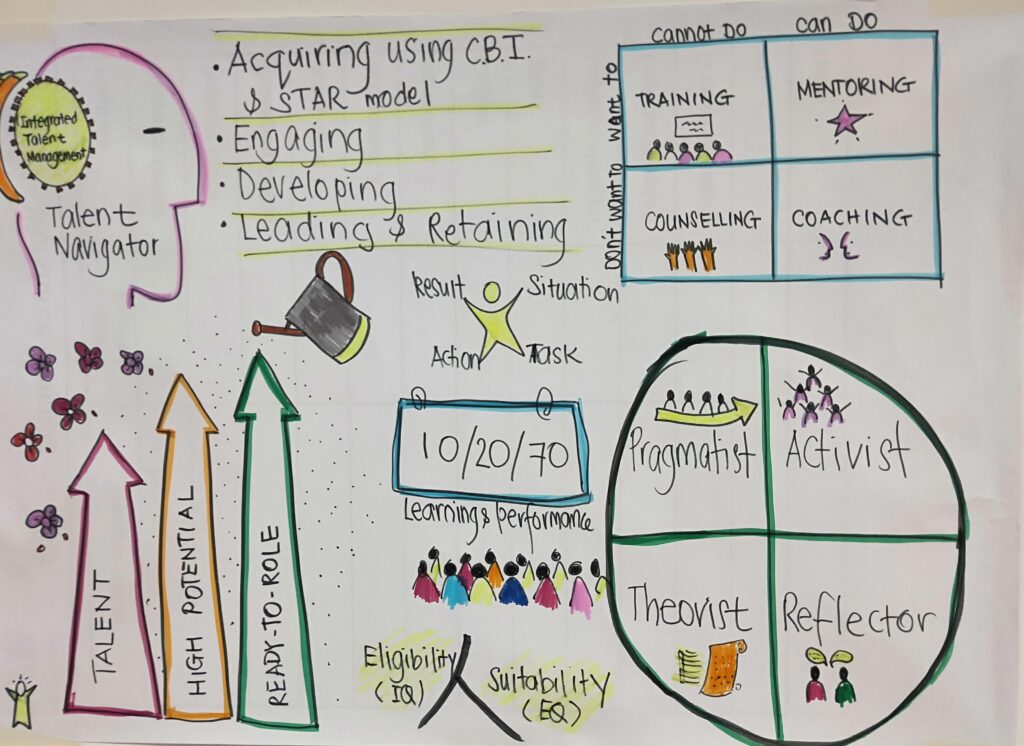
How to Coach – the Coaching Model
Goal
Assessment
Ideas
Next Steps
Support
Coaching is Giving Support
- What is the obstacle?
- Which competencies are missing?
- What is the symptom of the obstacles?
- Which opportunities for development present themselves?
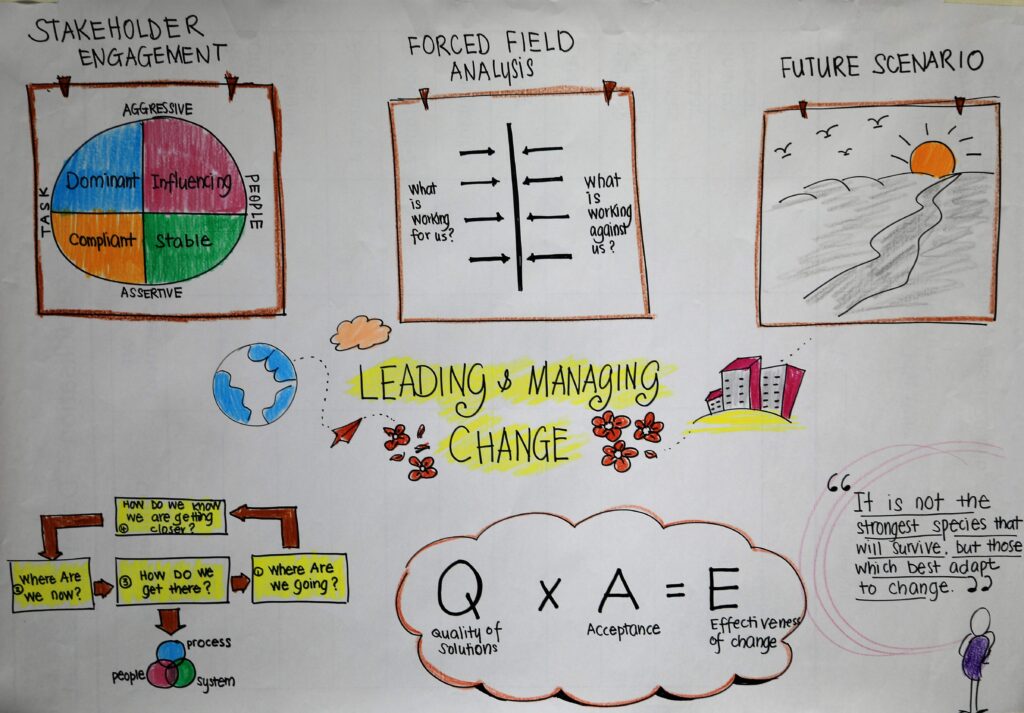
Qualities of a Good Coach
- highly competent in establishing relationships,
- a creator of ‘coachable’ moments,
- a quick reader of human context,
- a masterful contextual listener,
- a masterful facilitator of discovery,
- a ‘laser’ articulator of information,
- an efficient and effective gap delineator and bridger,
- a ‘stretch’ requestor,
- a consciously competent celebrator of human accomplishment and
- the best of being teacher, trainer, facilitator, advisor, coach, mentor or leader depending on the needs of the individual
Conclusion
With the best of leaders, When the work is done, The project is completed, The people all say, ‘We did it ourselves.’
Lao Tzu
- All Posts
- Coaching

